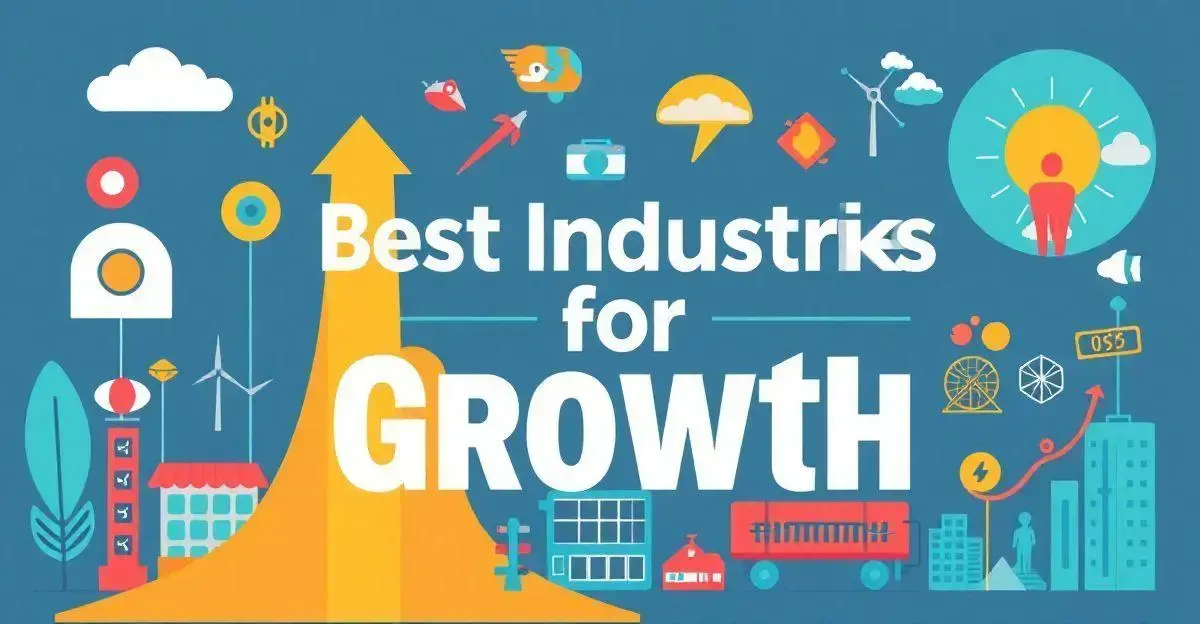The best careers for the future are taking shape as technology and global needs shift rapidly. Fields like data science, renewable energy, and AI are becoming essential, opening doors to high-growth opportunities. For those planning ahead, understanding these trends is key.
Emerging roles now focus on innovation and sustainability, with skills like adaptability, tech fluency, and critical thinking gaining importance. These qualities can be a game-changer in tomorrow’s job market.
If you’re curious about which paths offer the most potential and how to align your skills for lasting success, keep reading to explore what’s next!
The Best Careers for the Future
Understanding the best careers for the future begins with recognizing the changing job landscape. Many industries are transforming, and new opportunities are emerging. As technology advances, jobs related to data analysis, artificial intelligence, and renewable energy are gaining momentum.
Emerging careers focus on innovation and sustainability, while traditional roles are evolving to meet modern demands.
Moreover, soft skills like communication, teamwork, and adaptability are becoming more important. These skills complement technical abilities and are critical for success in any career. As we look ahead, it’s vital to explore careers that not only match your interests but also align with future trends.
Top Skills Needed in Future Jobs

In the rapidly changing world, gaining the top skills needed for the best careers for the future is crucial for success.
First, technical skills like programming and data analysis are in high demand. As industries continue to innovate, the ability to analyze information and utilize software effectively becomes essential.
Moreover, critical thinking plays a vital role. Employers are looking for individuals who can solve complex problems with creativity and logic. Emotional intelligence is equally important, as collaboration and communication become key components of the workplace.
Adaptability is another significant skill. With advancements in technology, being open to learning new tools and techniques is necessary.
Lastly, strong communication skills are vital for expressing ideas clearly and working well with teams.
Impact of Technology on Job Market
The impact of technology on the job market is profound and ever-changing. With the rise of automation, many traditional jobs are disappearing, while new opportunities are emerging in some of the best careers for the future.
For example, roles in artificial intelligence and data science are on the rise, as companies seek skilled workers who can manage and interpret large datasets.
Furthermore, technology facilitates remote work, allowing employees to collaborate from anywhere in the world. This trend opens doors to global talent, but it also increases competition among job seekers. Workers must now showcase their digital skills and adaptability to succeed.
The job market is also changing due to advances in communication tools, which make it easier for teams to work together regardless of location. As technology progresses, staying informed about these changes is crucial for anyone looking to advance their career.
Best Industries for Growth

In today’s world, identifying the best careers for the future is essential for career planning. Technology and healthcare are two sectors that continue to expand.
Technology offers numerous opportunities in fields like cybersecurity, cloud computing, and software development. As businesses adopt digital solutions, the demand for tech professionals increases.
Meanwhile, the healthcare industry is booming due to an aging population and advances in medical technology. Jobs in nursing, telemedicine, and health informatics are increasingly needed.
With a focus on patient care and innovative solutions, these roles offer stability and growth potential. Another industry to watch is renewable energy.
As society shifts towards sustainable practices, jobs in solar and wind energy are on the rise. These sectors not only promote environmental responsibility but also promise long-term career opportunities.
How to Prepare for Future Careers
To prepare for the best careers for the future, start by understanding the skills needed in your desired field. This includes both technical skills and soft skills. For example, learning coding languages, data analysis, or project management can set you apart in the job market.
Additionally, it’s important to gain experience through internships or volunteer work. This not only builds your resume but also helps you understand the real-world applications of your skills. Networking is another effective way to prepare.
Connecting with professionals in your interest area can provide valuable insights and potentially open doors to job opportunities.
Keep learning! Staying updated on industry trends shows potential employers that you are committed to your professional growth. Online courses, workshops, and certifications can enhance your knowledge and improve your marketability.
Remote Work and Its Future

The remote work trend has drastically changed how we view employment today. Many companies have adopted flexible work arrangements, allowing employees to work from home or other locations.
This shift has led to increased productivity for many, as it reduces commuting time and offers a more comfortable work environment, which is especially appealing for those pursuing the best careers for the future.
Additionally, remote work fosters a better work-life balance, which is essential for employee well-being. Workers can manage personal duties alongside professional tasks, leading to higher job satisfaction. With the right tools and communication platforms, teams can collaborate effectively from anywhere in the world.
However, remote work also presents challenges. Isolation and communication barriers can affect teamwork. It’s essential for companies to implement strategies that promote engagement and keep employees connected.
Frequently Asked Questions about Future Careers
What skills are most important for future careers?
Skills like technical expertise, critical thinking, adaptability, and strong communication are essential for success.
How can I adapt to changes in the job market?
Staying informed about industry trends and continuously learning new skills will help you adapt effectively.
What industries are expected to grow in the coming years?
Industries such as technology, healthcare, and renewable energy are projected to experience significant growth.
How can I prepare for a remote working environment?
Develop strong communication skills and become familiar with online collaboration tools to thrive in a remote work setting.
Is networking important for career advancement?
Yes, networking can open up new opportunities and provide valuable insights from industry professionals.
What steps should I take to achieve my career goals?
Set clear, attainable goals, seek mentorship, and pursue relevant education opportunities to stay on track.


